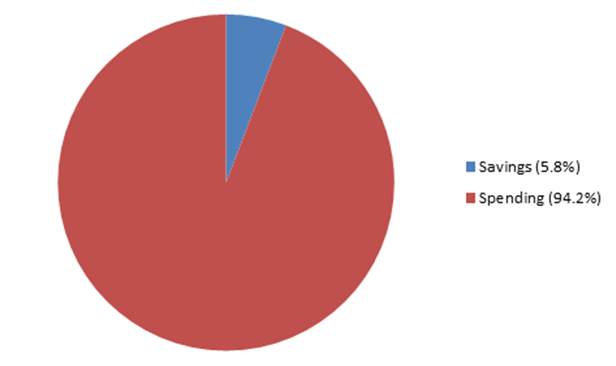Six ways to protect yourself from the ravages of inflation
Post on: 16 Июль, 2015 No Comment

By Dylan Lobo 13 Oct, 2010 at 10:15
6 Comments
One of the biggest calls for asset allocators in the coming months is how to play the prospect of a marked increase in inflation.
The latest inflation report will certainly sit uneasy with asset allocaters. It showed consumer prices were 3.1% higher year-on-year and 1% above the Bank of England’s 2% target.
However, few believes this will stop the Bank of England pumping more into the creaking economy, which presents the real threat of inflation spiralling out of control.
Fidelity fixed income fund manager Ian Fishwick underlines the dilemma facing the Bank. ‘With the UK economic recovery faltering, more monetary stimulus in the form of a second round of Quantitative Easing may be necessary but with inflation remaining uncomfortably high (we see CPI remaining above 2.5% until the start of 2012), it is by no means certain.’
Some are more sanguine about the near term threat of inflation threat than others. For example M&G’s head of retail fixed interest Jim Leaviss (below), believes the UK will remain firmly in a disinflationary environment for the foreseeable future.
He says: ‘With economic growth looking sluggish and wage pressures benign, I don’t think we need to be worried about inflation at the moment. There is too much unemployment, with too much spare capacity for inflation to be a real threat. In fact, we believe that the next step may well be further quantitative easing from the central banks.’
But other are not so dovish and have positioned portfolios in anticipation of a spike in inflation.
Richard Marwood. a manager on the AXA Investment Managers’ Distribution fund range, said he saw protection against inflation as an important part of the portfolios.
Marwood said: ‘Although some fear that austerity measures proposed by the coalition government could drive the UK back into recession, and herald deflation, we do not necessarily share these fears. Indeed one piece of “austerity” will be directly inflationary – the increase of VAT to 20% in 2011.
‘Globally, many central banks are looking to unconventional monetary policy to generate higher inflation, with more Quantitative Easing on the cards. Such policies could well have significant inflationary consequences in due course.’
Armstrong Investment Managers (AIM) was far more hawkish in its warning on the ‘ravages’ of inflation.
AIM managing partner Patrick Armstrong says: ‘Politicians are completely incentivised to create inflation and destroy the purchasing power of their currencies because the alternatives of paying down debt through large tax increases and massive spending cuts will surely see them lose public favour.’
AIM warns that low yielding government bonds, which are yielding less than inflation, should not be viewed as a safe haven in this type of environment.
Fellow AIM managing partner Dr. Ana Armstrong (below), explains: ‘10-year yields on bonds from the US and Germany are below 2.4% and the UK is currently at 2.8%. UK consumer prices are 3.1% higher than a year ago and the retail price index, which includes housing, is up 4.6% during that period.
She adds: ‘Bond investors need a massive fall in future inflation to receive a positive real return on Government bonds. Yet surprisingly the bond market only seems worried about deflationary forces driven by weak economic growth and high unemployment.’
For this reason AIM believes investors need to position their portfolios now to protect themselves from a fall in their real net worth and a slump in their purchasing power.
AIM highlights six ways in which investors can protect themselves from inflation:
High yielding utilities and infrastructure

Utilities and global water equities are currently yielding almost 5%. We expect the global water industry will have many years of above-average growth based on increased demand from mass urbanisation of emerging markets and decades of underinvestment worldwide.
Many utilities also have a regulated asset base and their revenues are linked directly to inflation. The current high yield with a strong potential to increase dividends with inflation make these types of equities very attractive inflation hedges.
Dividend Futures
Over the long term, equity earnings and dividends tend to grow at a rate roughly equal to economic growth plus inflation. Due to technical factors implied dividends on the Euro Stoxx 50 are showing negative dividend growth for the next five years. Bottom up consensus estimates for these dividends show 8% growth per annum. We believe dividends offer a cheap hedge on future inflation.
Long Asian Currencies vs West
Asian countries are running huge fiscal and current account surpluses. They also have much lower unemployment and higher economic growth. We expect a continued broad appreciation of Asian currencies vs the major western currencies (USD, EUR, GBP).
Commodity-backed economies with higher growth and lower deficits
The Brazilian and Canadian equity markets benefit from economies which are backed by a wide range of commodities, lower unemployment and better economic growth, plus their respective governments did not need to bail out their banks in the crisis.
Precious metals and commodities
As central banks destroy the purchasing power of their currencies we expect continued upward pressure on a range of commodities. We expect gold, silver and platinum will continue to benefit as alternatives to fiat currencies, while agricultural commodities have the potential to spike higher based on low inventories and rapidly increasing demand. Long short duration high yield bonds and short long duration.
Government bonds
Short-dated high yield corporate bonds offer a yield greater than inflation and are yielding 4% more than government bonds. By focusing on shorter dated maturities investors can lower the capital at risk from rising spreads or rising interest rates.














